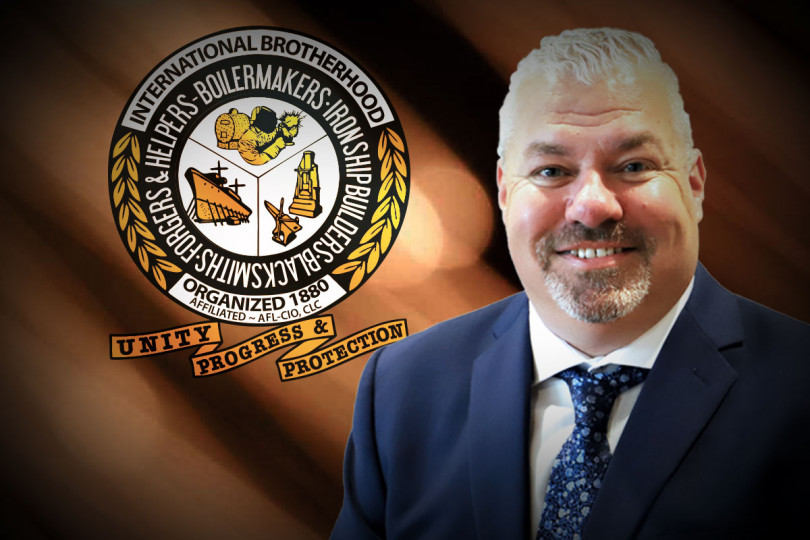by Cory R. Channon
International Director of Climate Change Policy Solutions, M.O.R.E. Work Investment Fund
Assistant Director of Construction Sector Operations/Canada
There’s an oxymoronic phrase “hurry up and wait” that aptly describes the ramp-up of any large-scale construction project. It’s a reference to the tedious and time-consuming—yet integral and intensive—foundational behind-the-scenes work that must be done often years in advance of the first ceremonial shovel breaking ground: The general planning and research, environmental assessments, zoning and permitting, capital and investor wooing, community relationship- and consensus building sessions, and meetings upon meetings with government officials, issues groups, individual citizens and even detractors. It’s an investment of strategy and patience that pays off in projects that come to fruition, creating jobs and benefitting communities.
It should come as no surprise, then, that the same is true for carbon capture, use and storage projects—which have an added layer of unique environmental navigation and education that must also be applied. That’s exactly why the International Brotherhood of Boilermakers has been committed to proactively seeking out and actively participating in as much of the global discussion on CCUS as possible. As CCUS projects emerge and slowly take shape on the horizon, we are working hard at positioning our union as an industry leader that not only can help these innovative projects break ground, but that also has the workforce ready to bring them to life.
That’s also exactly why the sense of urgency is now to bring people, businesses, carbon capture experts and organizations, environmental advocates and government entities together as champions of carbon capture technologies. Even while prospective projects in our “back yards” may seem yet too distant to grasp, the critical “unseen” foundational work is happening that will catalyze the next steps. We cannot delay our work to ensure legislators, government officials, environmental leaders, prospective financial backers and employers fully understand why and how carbon capture technology is the right solution to mitigate climate change while preserving jobs, economies and social stability.
It’s why we have worked hard to cultivate mutually beneficial relationships with organizations like the Global CCS Institute and the International CCS Knowledge Centre. Through those relationships and others, the Boilermakers have been invited to speak on behalf of labor around the world about CCUS. Amid the droning of politicians, environmentalists and white-collar business leaders, our voice from the perspective of labor has been a welcome change of tone that cuts through the clutter and has opened the eyes, ears and minds of new audiences at events as prestigious as New York’s Climate Week and at the United Nations Climate Change Conference.
It’s why we produced the film “CCS: Bridge to a Cleaner Energy Future” and a dedicated website, www.CleanerFutureCCS.org. It’s why we contribute to articles and reports about CCUS, and why we are invited to participate in panel discussions on climate change solutions and energy production. It’s why we’ve advocated so diligently for CCUS in addition to our day-to-day Boilermaker jobs.
This work is all an investment in those projects we can see “just beyond the horizon”—but growing steadily closer. It’s an investment in ensuring their viability and the opportunity that Boilermakers will be put to work in them when the ground breaks in a few years. It takes time to raise awareness about CCUS, to educate people, to secure the right policies that will pave the way and to realize a cultural shift in recognizing CCUS as an environmental solution. That’s what we’re doing. Now.
The closing of coal and natural gas facilities throughout the world due to climate change and environmental pressure to deploy wind and solar alternatives requires that we engage in the world argument and lead the fight to save the collective livelihoods of craft workers by advocating for carbon capture technologies.
Worldwide there are currently 21 CCUS facilities in operation, four under construction and 28 in development. We know this is just a start, because according to the International Energy Agency’s 2019 technology report, 1,000 large-scale CCUS facilities will need to be operational by 2040 to meet the Paris Climate Agreement’s goals. The IEA called on CCUS to play a critical role in the energy sector reaching net zero emissions while catalyzing near-term jobs. That is good news for Boilermakers, for the environment and for our economy.
Will it happen overnight? No, of course not. CCUS projects endure the same “hurry up and wait” as any large-scale construction project. Plus, consider: For every CCUS project there are specific hurdles that must be cleared, including pre-feasibility studies, feasibility studies, feed studies and investments. This is new technology for many, and the technology is complex.
But more CCUS units will be built, because the alternative will be to shutter facilities. And Boilermakers will build these new CCUS units and retrofit projects in time. Boilermakers will build them, because Boilermakers have been part of the narrative and discussion on CCUS from the beginning. We are woven into the very fabric of these initiatives.
Boilermakers built Shell’s Quest in Edmonton, Alberta. Boilermakers built SaskPower’s Boundary Dam in Estevan, Saskatchewan. Boilermakers built the North West Refining’s Sturgeon Refinery, part of the Alberta Carbon Trunk Line.
If we engage in the fight and build alliances worldwide, Boilermakers can build the next generation of CCUS facilities. But win or lose, we must engage in the fight. We must build alliances worldwide. This is called representation of the working futures of our members.






